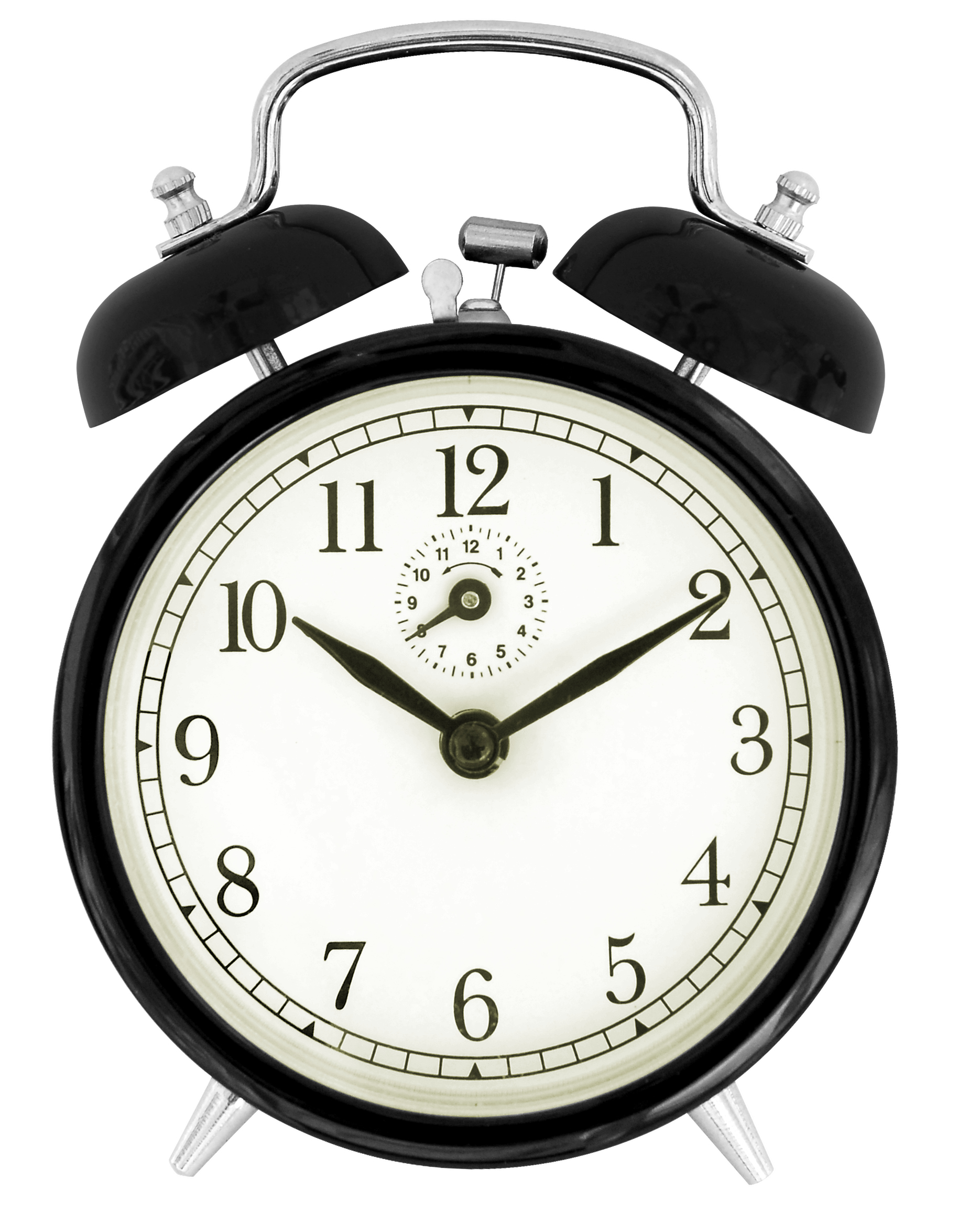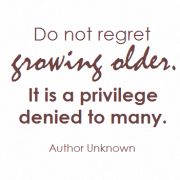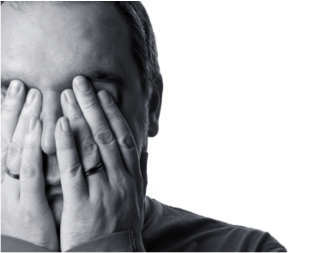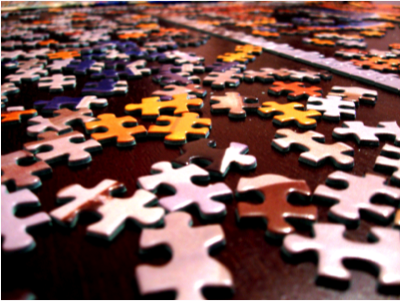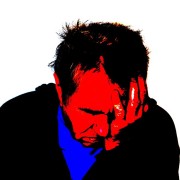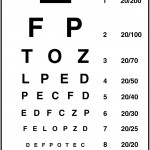Senior Care: Sleep Disorders
 Insomnia and hypersomnia are associated with mood disorders and depression in particular. In vulnerable individuals problems sleeping should be noted; enabling better sleep can bring significant relief and help cope with the illness.
Insomnia and hypersomnia are associated with mood disorders and depression in particular. In vulnerable individuals problems sleeping should be noted; enabling better sleep can bring significant relief and help cope with the illness.
Sleep disruption is a very common finding in patients with psychiatric difficulties. A large community study found that a much higher proportion of people with insomnia or hypersomnia (sleeping more than usual) have a major psychiatric illness when compared to people who do not have these sleep complaints. Furthermore, when someone has insomnia early in life he or she is more likely to develop depression in later life. Over 70% of patients who are acutely ill with a psychiatric condition have insomnia and unfortunately the sleep disruption may not improve even when the illness is in remission and are known to cause depression. One’s social situation is another important factor, for example, if one is living in poor housing with little income and few social supports, or in an abusive relationship, then there is an increased risk for becoming depressed.
Doctors will usually encourage the use of antidepressant medications first as it can be difficult to take advantage of therapy when one is feeling so low. Psychotherapy can be long-term, looking at the factors from the past that may have resulted in or made one vulnerable to depression, or short-term, focusing more on the current situation and teaching one strategy to deal with the negative thoughts that often accompany depression.
Do psychiatric disorders cause sleep disorders?
Insomnia co-occurs with depression more than with any other illness, either medical or psychiatric. Sleep disruption (insomnia or hypersomnia) is one of the symptoms used to determine whether or not someone is depressed. It is often one of the first signs of an episode of depression, often preceding the onset of low mood and dissatisfaction in people who have recurrent depression. Typically, people have difficulty getting off to sleep, have many awakenings across the night and awaken in the very early morning and cannot get back to sleep. They feel very tired in the daytime and this makes the other symptoms of depression difficult to tolerate. There are some people for whom depression results in them sleeping much more than they normally would. When the sleep of people with a depression is recorded in the sleep clinic, we find that they have a delay in falling asleep, less deep sleep and poor sleep quality. They often have more REM sleep (rapid eye movement sleep, which is when dreaming occurs) and it occurs earlier in the night.
As mentioned above, it may be the case that sleep may not go back to “normal” even when the depression has improved. It is important to pay close attention to sleep hygiene factors, such as eliminating caffeine and keeping a regular sleep-wake schedule. Learning and practicing relaxation strategies can be very beneficial. It may be helpful to do some therapy, such as cognitive behavioural therapy, aimed specifically at treating the insomnia. The more one can work on such strategies when one is well the easier it will be to put them into practice should the depression recur in the future. When there is a history of depression alterations in sleep may signal its recurrence. Getting the insomnia under control as soon as possible will likely improve the course of the illness. Given the strong associations between sleep disruption and depression, it may even be worth considering restarting treatment for the depression at this point before it advances to a higher level of severity.
There is no doubt that sleep disruption often appears when a psychiatric illness develops. This is not surprising since the increased arousal and anxiety that often accompanies such illnesses will make it more difficult to sleep. However, there is evidence that the opposite may be true, that is, insomnia may trigger psychiatric illness or make someone who is vulnerable more likely to have an episode of illness. It may be the case that mental health and sleep are controlled by common brain mechanisms. When these mechanisms are altered or become disrupted, both sleep problems and psychiatric illness may occur.
How do mood disorders affect sleep?
Depression is the most common mood disorder. Approximately 1 in 4 women will suffer from an episode of depression at some time during their lives. The number for men is less but a significant proportion will also suffer from this condition. An episode of major depression is diagnosed when there is a history of feeling sad or not being able to enjoy things as much as usual for at least 2 weeks (often it is much longer than this). This feeling is accompanied by several other symptoms such as having difficulty paying attention and concentrating; loss or significant increase in appetite; insomnia or hypersomnia; having recurrent thoughts about wishing that one were dead or thinking about ending one’s life; not being able to get pleasure out of things previously found pleasurable.
Do antidepressants affect sleep?
The recording of sleep in the sleep clinic shows that antidepressants have the greatest effect on REM/dreaming sleep, decreasing the amount. Patients sometimes notice that they dream more vividly after starting an antidepressant and in rare cases, nightmares can be problematic. Excessive dreaming may occur during withdrawal from an antidepressant.
What causes depression?
There are likely many causes. One is a genetic vulnerability. A strong history of depression in a family increases the likelihood that one will have a similar condition. Depression can also result from certain medical conditions such as hypothyroidism, stroke, head injury and HIV. There is evidence that ongoing sleep disruption contributes to depressed moods. Certain medications, for example prednisone can trigger or worse episodes of depression. Unfortunately, antidepressants can cause or worsen restless legs syndrome, periodic leg movements (PLMs) during sleep, and sleep bruxism (teeth- grinding), often resulting in fragmentation of sleep.
What happens to sleep during depression?
The main focus of treatment must be treating the underlying condition, namely the depression. This is done through the use of antidepressants and/or psychotherapy. There are many antidepressants available nowadays and most people are able to find adequate relief from their difficulties. The response to an antidepressant varies greatly from person to person. There are certain antidepressants that almost always make one sleepy and the doctor treating a patient for whom insomnia is a problem may choose one of these in order to help treat the sleep problem. Some doctors, when starting an antidepressant, may also give the patient a short-term supply of a sleeping medication such as zopiclone or lorazepam (especially when anxiety is also causing difficulties). Such medications should be used in the short-term only and should be discontinued when the depression starts to respond to the antidepressant. There is no doubt that enabling someone to sleep if they have been depressed and not sleeping well for some time, can bring significant relief and helps them cope with their illness and even get better. Most antidepressants change sleep. As noted above, some such as mirtazapine are beneficial in that they are sedating and they can, therefore, be taken at night to treat insomnia. Some antidepressants, for example, buproprion, often make one feel more alert and awake. Hence, they are useful when the patient suffers from hypersomnia. Some people find it is more difficult to get to sleep, and complain of sleep disruption, when they first start taking the medication. These disruptive effects usually last for 4-6 weeks and if they persist another medication should be tried or a sleep-promoting agent added.
How to Get a Good Night’s Sleep — Even When You’re Depressed
People suffering from depression and bipolar are usually significantly affected by disrupted sleep patterns. Sometimes spending hours in bed, unable to get out, yet you just can’t sleep. Other times you end up sleeping, but wake up at 4 a.m., your mind racing with all sorts of negative thoughts. It’s not just you, and getting the right amount of sleep as very important… actually… critical to good health.
Depression both causes and is compounded by sleep disruption. The low energy caused by sleep deprivation also affects your ability to treat depression. How on earth can you make and attend appointments with experts, exercise or eat properly when you are perpetually exhausted? And socializing? Don’t even go there — the last thing you want to do when tired is talk to people. But what if you could take control of the situation, finally get a good night’s sleep and enjoy the benefits of restorative sleep and higher energy levels?
With a little bit of willpower and a change in routine, you can do this. Sleep is important. In fact, respondents to my survey of over 4,000 people rated getting a good night sleep number 10 (out of 60) in importance for overcoming depression and bipolar.
So where do you start in finally getting a good night’s sleep?
Sleep Hygiene
In the same way that you maintain personal hygiene through washing your body and oral hygiene by brushing your teeth and flossing, sleep hygiene is a set of practices to follow as a routine, which will yield a good night’s sleep.
As a general point, this is a good idea even for those not suffering from depression, as there are many health benefits to a full night’s sleep. There’s a huge list of practices, which can form part of sleep hygiene, but it’s down to you as to which ones will work best for you.
As a general rule of thumb, though, the aim is to create a routine, which you can follow. The following points reiterate and emphasize the importance of routines & transforming your environment into the most conducive and sleep inducing space possible. Several points to enhance a good night’s rest couple here, but the one I recommend most is the one that is hardest to do:
Use your bed only for sleep
You will find it harder to sleep if you stay in your bed all day, unable to move or act. I know I did. This is because you end up associating your bed with a general state of inertia, rather than the place in which sleep occurs. So even if you transfer to a sofa or somewhere else horizontal to lie all day, this is a very important step to take.
Don’t Force Yourself to Sleep
You can’t will yourself to sleep and getting frustrated at your inability to sleep doesn’t help either… nor does glancing at the clock every few minutes. Try some meditation exercises in bed, such as paying attention to your breath, which will help clear your mind a little and take attention away from the thoughts racing around in your head.
Have a Bedtime Routine
A bedtime routine, regularly followed, signals to your body that it’s time to start winding down, which helps encourage sleep. Things like avoiding upbeat music and stimulants like cigarettes, alcohol and caffeinated drinks and trying a little bit of meditation or yoga, putting on some relaxing music or some lavender essential oil or pillow spray can all help prepare you for sleep.
Maintain the Proper Atmosphere
If your bedroom isn’t a good sleep environment, you’ll find it difficult to relax. A bedroom which is dark, quiet and cool (but not cold) is crucial achieving a good night’s sleep. Too light and you’ll struggle to sleep. Too noisy and you may be awakened by sounds during the night. If it’s the wrong temperature, you’ll be tossing and turning and kicking off the covers during the night. Consider having a fan in the room. As well as helping to regulate the temperature, the ‘white noise’ of the fan’s engine can be a helpful noise to tune in to and help encourage sleep.
Sleep Better, Feel Better, Beat Depression
Once your sleep hygiene improves, you will feel more refreshed and energized and really feel the benefits of a good night’s sleep – and wonder why you didn’t initiate good sleep hygiene earlier! Then you can start making real progress in boosting your mood. You will have the energy and motivation to take action, you’ll also have the practice and experience of making changes to your lifestyle and routine, so you know that you can do it and it is beneficial.
What Other Techniques Can Help Me Sleep?
In addition to trying medications, here are some other tips to improve sleep:
- Learn relaxation or mindfulness-based meditation and deep-breathing techniques.
- Clear your head of concerns by writing a list of activities that need to be completed the next day and tell yourself you will think about it tomorrow.
- Get regular exercise, no later than a few hours before bedtime.
- Don’t use caffeine, alcohol, or nicotine in the evening.
- Don’t lie in bed tossing and turning. Get out of bed and do something in another room when you can’t sleep. Go back to bed when you are feeling drowsy.
- Don’t lie in bed to watch TV or read. This way, your bed becomes a cue for sleeping, not for lying awake.
How is depression and sleep disorders related?
Depression is a mood disorder that is characterized by sadness, or having the blues. Nearly everyone feels sad or down from time to time. Sometimes, however, the sad feelings become intense, last for long periods, keep a person from leading a normal life, and interfere with sleep.
According to the National Institute of Mental Health, symptoms of depression may include the following:
- Difficulty concentrating, remembering details, and making decisions
- Fatigue and decreased energy
- Feelings of guilt, worthlessness, and/or helplessness
- Feelings of hopelessness and/or pessimism
- Insomnia, early-morning wakefulness, or excessive sleeping
- Irritability and restlessness
- Loss of interest in activities or hobbies once pleasurable, including sex
- Overeating or appetite loss
- Persistent aches or pains, headaches, cramps, or digestive problems that do not ease even with treatment
- Persistent sad, anxious, or “empty” feelings
- Thoughts of suicide, suicide attempts (if you are thinking of acting on ideas about suicide, call your local 24-hour suicide hotline right away).
Depression in Men
While clinical depression was once considered a “woman’s disease,” more than 6 million men in the U.S. have depression each year. Unfortunately, the lingering image of depression as a female condition may keep men who are clinically depressed from recognizing the symptoms of depression and seeking treatment. Depression actually affects both sexes. It disrupts relationships and interferes with work and daily activities. The symptoms of depression in men are similar to the symptoms of depression in.
There are several reasons why the symptoms of clinical depression in men are not commonly recognized. For example, men tend to deny having problems because they are supposed to “be strong.” And American culture suggests that expressing emotion is largely a feminine trait. As a result, men who are depressed are more likely to talk about the physical symptoms of their depression — such as feeling tired — rather than symptoms related to emotions.
Men are less likely to show more “typical” signs of depression such as sadness. Depression in men may cause them to keep their feelings hidden. Instead of expressing a depressed mood, they may seem more irritable and aggressive. For these reasons, many men — as well as doctors and other health care professionals — may fail to recognize the problem as depression.
What are the consequences of untreated depression in men?
Depression in men can have devastating consequences. The CDC reports that men in the U.S. are about four times more likely than women to commit suicide. A staggering 75% to 80% of all people who commit suicide in the U.S. are men. Though more women attempt suicide, more men are successful at actually ending their lives. This may be due to the fact that men tend to use more lethal methods of committing suicide, for example using a gun rather than taking an overdose of pills.
Is depression common in elderly men?
Although depression is not a normal part of aging, senior men may have medical conditions such as heart disease, stroke, cancer, or other stressors that may contribute to depression. For example, there is the loss of income and meaningful work. Retirement is difficult for many men because they end up with no routine or set schedule to follow. These changes may increase the stress they feel, and a loss of self-esteem may contribute to depression. In addition, the death of family and friends, the onset of other health problems, and some medications can contribute to depression in men.
How is depression in men treated?
More than 80% of people with depression — both men and women — can be treated successfully with antidepressant medication, psychotherapy, or a combination of both. If you are uncertain about whom to call for help with depression, check out the following list from the National Institute of Mental Health:
- community mental health centers
- employee assistance programs
- family doctor
- family service/social agencies
- health maintenance organizatios
- hospital psychiatry department and outpatient clinics
- local medical and/or psychiatric societie
- mental health specialists such as psychiatrists, psychologists, social workers, or mental health counselors
- private clinics and facilities
- state hospital outpatient clinics
- university or medical school affiliated programs
Depression is classified as major if the person has at least five of these symptoms for two weeks or more. However, there are several types of depressive disorders. Someone with fewer than five of these symptoms who is having difficulty functioning should still seek treatment for his or her symptoms. Tell your doctor how you are feeling. He or she may refer you to a mental health care specialist.
How Are Sleep and Depression Linked?
An inability to sleep, or insomnia, can be one of the signs of depression (a small percentage of depressed people, approximately 15%, oversleep or sleep too much). Lack of sleep alone cannot cause depression, but it does play a role. Lack of sleep caused by another medical illness or by personal problems can make depression worse. An inability to sleep that lasts over a long period of time is also an important clue that someone may be depressed.
What Causes Depression?
There are several factors linked to depression, including
- Family history of mental disorders
- Chemical imbalances in the brain
- Physical and mental health disorders
- Environment such as living in a place that is often cloudy and gray
- Stress
- Alcohol or drug abuse
- Medications
- Lack of support from family and friends
- Poor diet
How Is Depression Diagnosed?
Your doctor will take your medical history, and will likely ask you whether anyone in your family has depression or other mental health problems. He or she may also ask you to describe your moods, your appetite and energy, if you feel under stress, and if you have ever thought about suicide. Your doctor will also perform physical exam to determine if the cause of your symptoms is caused by another illness.
What Depression and Insomnia Treatments Are Available?
Treatment choices for depression depend on how serious the illness is. Major depressive disorder is treated with psychotherapy (counseling, or talk therapy with a psychologist, psychiatrist, or licensed counselor), medications, or a combination of the two. Drugs tend to work more quickly to decrease symptoms while psychotherapy helps people to learn coping strategies to prevent the onset of future depressive symptoms.
Medications used to treat depression include antidepressants such as:
- Selective serotonin reuptake inhibitors (SSRIs), like Zoloft, Prozac, Celexa and Paxil. These medications can perform double duty for patients by helping them sleep and elevating their mood, though some people taking these drugs may have trouble sleeping.
- Tricyclic antidepressants (including Pamelor and Elavil)
- Serotonin/norepinephrine reuptake inhibitors (SNRIs) like Effexor, Pristiq, Khedezla, Fetzima, or Cymbalta, that raise levels of both serotonin and norepinephrine — brain chemicals that are thought to be involved in the neurobiology of depression.
- Novel antidepressants such as bupropion (Wellbutrin)
- Some of the most effective types of psychotherapy for depression are cognitive-behavioral therapy and interpersonal therapy. With cognitive-behavioral therapy, ptients learn to change negative thinking patterns that are related to feelings of depression. Interpersonal therapy helps people to understand how relationship problems, losses, or changes affect feelings of depression. This therapy involves working to iprove relationships with others or building new relationships.
Sleeping Pills
Hypnotics are a class of drugs for people who cannot sleep. These drugs include Ambien, Sonata, and Restoril. Doctors may sometimes treat depression and insomnia by prescribing an SSRI along with a sedating antidepressant or with a hypnotic medication. However, hypnotic drugs usually should be taken for a short period of time.
The FDA has also approved a prescription oral spray called Zolpimist, which contains the sleep drug Ambien’s active ingredient, for the short-term treatment of insomnia brought on by difficulty falling asleep.
Psychotherapy can also address coping skills to improve a person’s ability to fall asleep… because nothing beats a good night’s sleep.

